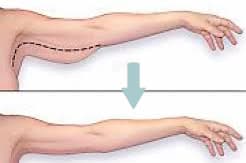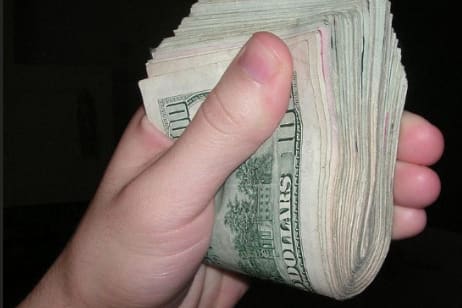Jan Dhan accounts keep villagers sober, slow rural inflation: Study
Surojit Gupta | TNN | Updated: Oct 16, 2017, 09:46 ISTHighlights
- Drop in consumption of intoxicants such as alcohol and tobacco products in states where more PMJDY accounts were opened: Study
- Study by the economic research wing of the State Bank of India
- Experts say availability of banking channels can trigger change in behaviour.

NEW DELHI: Village residents who opened bank accounts under the Prime Minister's Jan Dhan Yojana (PMJDY) may be saving more and cutting back on their consumption of alcohol and tobacco, a study by the economic research wing of the State Bank of India (SBI) suggests.
This may have also slowed inflation in rural areas. When the PMJDY programme was launched there were fears that higher circulation of money would stoke inflation. The study using retail inflation data showed that states with more than 50% share of Jan Dhan accounts in villages had a "meaningful drop in inflation".
Of the 30 crore-plus Jan Dhan accounts, many were opened after demonetisation last November. Just 10 states have 23 crore or 75% of the accounts, with Uttar Pradesh (4.7 crore) topping the list, followed by Bihar (3.2 crore) and West Bengal (2.9 crore). The SBI study analysed state-wise impact of PMJDY accounts on rural and urban consumer price index (CPI). It is part of a research paper which is expected to be released later this year. "The analysis confirms that besides formalisation of the economy, financial inclusion has had tangible benefits which is visible in the inflation data," the study said.

Besides inducing villagers to save, the Jan Dhan bank accounts also seem to have steered them away from intoxicants. "We observed that there is both statistically significant and economically meaningful drop in consumption of intoxicants such as alcohol and tobacco products in states where more PMJDY accounts were opened," the study conducted by Soumya Kanti Ghosh, group chief economic adviser at SBI, and his team showed. "This could be because of behavioural changes like less spending after demonetisation," the study said. It also found an increase in household medical expenditure in states of Bihar, West Bengal, Maharashtra and Rajasthan since October 2016.
Experts said availability of banking channels can trigger change in behaviour. "It is well known that your spending behaviour changes when you have cash with you compared to money in the bank. It's the same when you have a credit card," said former chief statistician Pronab Sen. "There could be behavioural changes happening. But the most important thing is that Jan Dhan accounts are promoting a culture of saving and helping to curb spending on alcohol and other such items," said N R Bhanumurthy, professor at the National Institute of Public Finance and Policy (NIPFP).
However, Ashok Gulati, Infosys chair professor of agriculture at the thinktank Indian Council for Research on International Economic Relations (ICRIER) said further analysis is needed to prove the correlation between Jan Dhan accounts and behavioural changes. "We need more robust analysis before we can say for sure that because people now have bank accounts they are spending less on intoxicants," he said. The professor added that other factors, such as developed infrastructure and links with markets in some states may have had a far greater impact on the price situation.
Read this story in Gujarati
This may have also slowed inflation in rural areas. When the PMJDY programme was launched there were fears that higher circulation of money would stoke inflation. The study using retail inflation data showed that states with more than 50% share of Jan Dhan accounts in villages had a "meaningful drop in inflation".
Of the 30 crore-plus Jan Dhan accounts, many were opened after demonetisation last November. Just 10 states have 23 crore or 75% of the accounts, with Uttar Pradesh (4.7 crore) topping the list, followed by Bihar (3.2 crore) and West Bengal (2.9 crore). The SBI study analysed state-wise impact of PMJDY accounts on rural and urban consumer price index (CPI). It is part of a research paper which is expected to be released later this year. "The analysis confirms that besides formalisation of the economy, financial inclusion has had tangible benefits which is visible in the inflation data," the study said.

Besides inducing villagers to save, the Jan Dhan bank accounts also seem to have steered them away from intoxicants. "We observed that there is both statistically significant and economically meaningful drop in consumption of intoxicants such as alcohol and tobacco products in states where more PMJDY accounts were opened," the study conducted by Soumya Kanti Ghosh, group chief economic adviser at SBI, and his team showed. "This could be because of behavioural changes like less spending after demonetisation," the study said. It also found an increase in household medical expenditure in states of Bihar, West Bengal, Maharashtra and Rajasthan since October 2016.
Experts said availability of banking channels can trigger change in behaviour. "It is well known that your spending behaviour changes when you have cash with you compared to money in the bank. It's the same when you have a credit card," said former chief statistician Pronab Sen. "There could be behavioural changes happening. But the most important thing is that Jan Dhan accounts are promoting a culture of saving and helping to curb spending on alcohol and other such items," said N R Bhanumurthy, professor at the National Institute of Public Finance and Policy (NIPFP).
However, Ashok Gulati, Infosys chair professor of agriculture at the thinktank Indian Council for Research on International Economic Relations (ICRIER) said further analysis is needed to prove the correlation between Jan Dhan accounts and behavioural changes. "We need more robust analysis before we can say for sure that because people now have bank accounts they are spending less on intoxicants," he said. The professor added that other factors, such as developed infrastructure and links with markets in some states may have had a far greater impact on the price situation.
Read this story in Gujarati
Get latest news & live updates on the go on your pc with News App. Download The Times of India news app for your device.
From around the web
More from The Times of India
From the Web
More From The Times of India

These actors have unbelievable bank balances.
Fropky.com
10 Places Where You Can Retire for $200K
MoneyWise
There's A Good Reason Why This Plane Never Made It To Prod..
HistoryInOrbit.com
Famous People Who Died Without You Knowing
Refinance Gold
How To Look Younger By Becoming An "Exceptional Skin Ager"
Beverly Hills MD Skincare

Jio Diwali Dhan Dhana Dhan offer: All you need to know

Bypassed, Pawar raked up Sonia's Italian roots: Pranab Mukherjee in book

Software to track Maharashtra medical students on one-year rural stints

SIIL's missile assembly factory to be completed by Jan 2018

Israel inflation edges higher to +0.1 pct yr/yr rate in September









































All Comments ()+^ Back to Top
Refrain from posting comments that are obscene, defamatory or inflammatory, and do not indulge in personal attacks, name calling or inciting hatred against any community. Help us delete comments that do not follow these guidelines by marking them offensive. Let's work together to keep the conversation civil.
HIDE